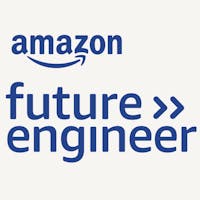Computer science is one of the most in-demand fields of the U.S. economy. Will there be enough skilled workers to meet the growing need? And will the people filling those roles be as diverse as our country?
We need the answer to both questions to be, “Yes!” To get there, we must diligently address fundamental gaps.
Findings from a recent Gallup survey note that student interest in computer science far exceeds access to computer science education, especially among historically underserved populations. Further, most students lack general exposure to the tech sector. This gap between interest and access is a missed opportunity for the nation’s economy as U.S. employers increasingly seek job candidates with skills or a background in computer science.
The Bureau of Labor and Statistics projects that the market for computer science occupations will grow 13 percent between 2020 and 2030. Currently, wages for such jobs are more than twice the median annual wage for all other occupations. Broad access to computer science resources is a critical enabler positively impacting the economic mobility of students. If we want more equitable outcomes for our students and their families, we must prioritize providing the computer science literacy skills that jobs with high earning potential demand.
Assessing Drivers of Student Interest and Engagement
Amazon Future Engineer, Amazon’s global philanthropic computer science education program, recently commissioned research from Gallup to better understand student interest and engagement in the computer science field. The new report—Developing Careers of the Future: A Study of Student Access to, and Interest in, Computer Science—provides a more comprehensive review of differences among racial, gender, location and socioeconomic status factors than previously available. The study also offers key insights for educators and employers endeavoring to equip students from all backgrounds with the resources needed to excel in higher education and to obtain high-demand jobs of the future.
The study of U.S. students in grades 5-12 reveals that access to school-based learning opportunities and role models is highly correlated with students’ persistence on their career journey. Students with access to school-based computer science classes are more than twice as likely to say they plan to study the topic in college and that they aspire to have a job in the field. Further, a student with a computer science role model is more than 10 times as likely to say they will pursue a computer science career than a student who lacks such a role model.
The study also uncovers that middle school and high school students overwhelmingly recognize the value of computer science knowledge in the U.S. economy. More than 90 percent agree that computer science can be used in many different types of jobs, that computer scientists help people and that they get to solve important problems. This indicates that increasing access to computer science learning opportunities and social connections among students can impact outcomes for future talent.
Sparking Student Curiosity Through Career Exploration
The report’s findings also help us determine the most effective ways to continue to inspire students, support educators and ensure that our initiatives have maximum impact and reflect the creativity of teachers who leverage our programs. We’ve listened to our top student and educator requests since we started Amazon Future Engineer. They said: “Help students understand career possibilities at a place like Amazon and conceptualize their journey to the tech industry.” In response, we launched “Meet an Amazonian” this year, an initiative that supports teachers and helps students secure access to real-world technology, careers and role models. The program brings virtual career talks (Class Chats) and Fulfillment Center tours into classrooms to connect students with a diverse group of role models and to help bring the industry to life.
The one-hour, computer science-themed Fulfillment Center Tours show students what happens behind the scenes after an order is placed on Amazon.com. Students discover how algorithms and machine learning power our fulfillment process. This includes how Amazon employees and technology work together to support customer fulfillment through the pick, pack and ship processes. The initiative helps debunk stereotypes and decode what computer science looks like, ensuring that students see how it fits into everyday life and is even infused in pop culture. The offering is available to grades 3 and above, equipping educators with a toolkit of slides, worksheets and extension activities aligned to the Computer Science Teachers Association’s K-12 Computer Science Standards.
Since launching in April, the “Meet an Amazonian” experiences have reached more than 150,000 students from over 2,000 U.S. Title I eligible schools. Educators have noted how such efforts connect students with role models and experiences that allow them to see a real future for themselves.
“I enrolled my class in the Amazon Future Engineer virtual Fulfillment Center Tour because I’m always looking for opportunities for my students to do more critical thinking and to examine professions outside of the normal ones they’re thinking of,” explains Jill Emery, Honors Algebra / Geometry teacher. “It was a great way to stretch their view and help them see themselves in a different place.”
Expanding Access to Students Who Lack CS Resources
Students can’t explore what they are not exposed to. We want them to know how developing computer science skills can help them achieve their career goals, whatever those might be.
If you are a school administrator or teacher, we invite you to register your students for a virtual Fulfillment Center Tour. The new program offering is free and open to educators across all subject areas.



